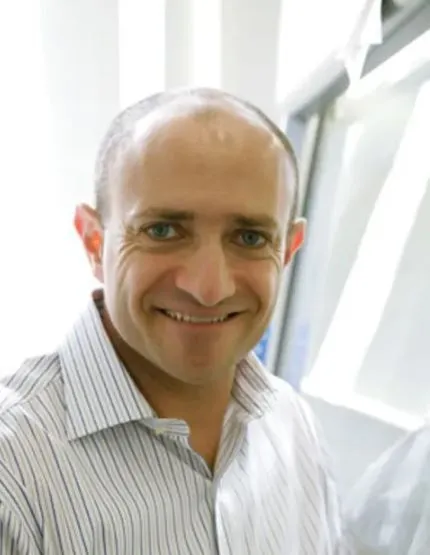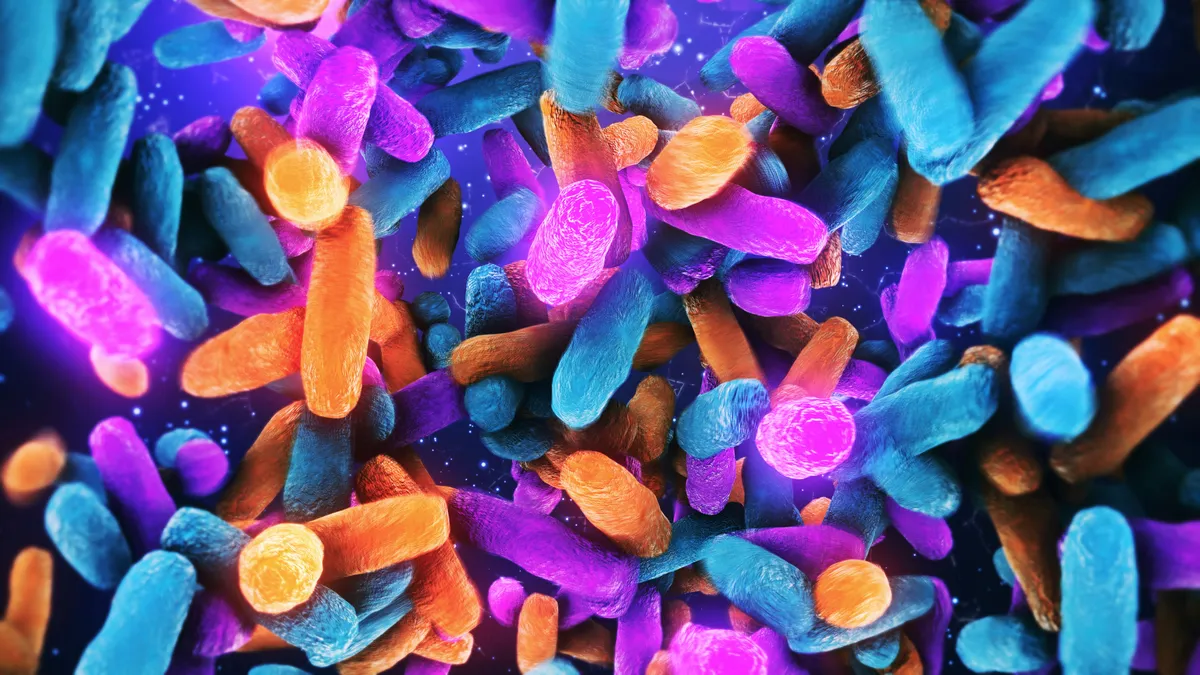Walk into your local CVS and you’re likely to find probiotics in one of two places — the yogurt aisle or with the dietary supplements. Soon, they could also end up behind the pharmacy counter.
A growing number of biotech startups are testing live microorganisms as medications with some success. As early as next year, Seres Therapeutics could bring to market the first ever FDA-approved microbiome drug, according to a recent announcement from the company’s CEO, Roger Pomerantz. If approved, the medication, developed to treat the gastrointestinal infection Clostridioides difficile, could mark a turning point for pharma investment in microbiome drug development.
Another startup, Seed Health, is hoping to push the field even further. Founded in 2015, the Los Angeles-based biotech plans to expand the use of microbe drugs beyond gastrointestinal indications, where most treatments are currently focused.

“I think that everyone in the field of microbiome has been waiting for research to mature out of observational and become a little bit more interventional,” Seed Health’s co-founder and co-CEO, Raja Dhir, says. “We've seen some of the early wins and successes in areas where any ecology will work, or where there's a very low barrier or specificity of mechanism of action.”
Seed Health is tossing a wide net, building research pipelines with leading academics and researchers across many therapeutic areas, rather than using one single platform.
The company’s pipeline includes candidates for urinary tract infections, bacterial vaginosis and spontaneous preterm birth, all spun out under the women’s health company Luca Biologics. It also recently announced a new development program in collaboration with Axial Therapeutics to investigate treatments targeting the microbiome-gut-brain-axis for mental health conditions such as anxiety and depression.
“There's going to be a lot of failures in microbiome … the way that we address that is that all of our research programs are based or powered on extraordinarily large datasets and so we can see the patterns through the noise, or outside of the gut in the areas where we have a much deeper understanding of the microbial ecology,” Dhir says.
The 23andMe approach
To manage the larger pipeline, Seed is taking a dual approach to the microbe market with both a consumer-health branch commercializing over-the-counter supplements and a therapeutic branch for drug development
“We go through the regulatory path that best suits the science instead of the other way around,” Dhir suggests.
When a microorganism the company is testing meets FDA’s standards for a dietary supplement but would need further research to qualify for a drug application, the company takes the path of least resistance.
In many ways, Seed is taking a page out of the playbook for personal genetics companies like 23andMe. Eventually, with more research, some of the organisms in its supplements could become FDA approved drugs.
“We go through the regulatory path that best suits the science instead of the other way around."

Raja Dhir
Co-CEO of Seed Health
“Our hope is that we can make well-validated and scientifically sound products available for commercial sales and therapeutic development programs on the back of that data,” Dhir explains. “We're very agnostic to the regulatory type and we're willing to go to whatever path that takes just to prove out and generate data.”
So far, the company has two commercial supplements — its DS-01 daily synbiotic in use for adults with suggested benefits for digestive, heart, skin and gut health, and its PDS-08 pediatric daily synbiotic. According to Dhir, the company currently has about 40 other programs in investigative stages for the commercial branch.
In its therapeutic pipeline, Seed’s VMSC-04 candidate for prevention of recurrent urinary tract infection, under its Luca Biologics subsidiary, is reportedly entering a phase 1b/2a, studying the impact of vaginal fluid and microbiota transplantation, and its treatments for bacterial vaginosis and spontaneous preterm birth are in the final stages of preclinical development, Dhir says.
Breaking barriers
Over the next few years, the company is looking to build out its neurology pipeline through a newly announced licensing partnership with Axial Therapeutics to develop microbe drugs for treatment of anxiety, depression and other mental health conditions. The partnership, announced in July, builds on over 10 years of research by Axial’s CEO and Seed Health board member, Sarkis Mazmanian, on the impact of intestinal compound leakage into the bloodstream on brain functions and anxiety-related behaviors.

“When certain compounds that are produced in the intestines get into circulation, and those are compounds that in a normal condition aren’t meant to leak out, we believe this is what is inducing … these behavioral changes,” Mazmanian says of the research from his California Institute of Technology laboratory.
Axial is developing a small-molecule drug to prevent these intestinal compounds from being absorbed in the bloodstream and received promising results in a phase 1b/2a trial published in February. But, parallel research from Mazmanian’s CalTech lab has shown in mice that certain bacteria may also repair the gut — and that’s what the partnership with Seed seeks to investigate.
“The hypothesis is that what this drug did that we took into a human trial, the bacteria should do something similar. But the bacteria itself has never been tested in humans,” Mazmanian says. “The partnership with Seed will unlock the potential of using this bacteria as a therapeutic and maybe more immediately in the next couple of years as a probiotic that can be sold commercially.”
Under the partnership, Seed will co-license the research from Mazmanian’s CalTech lab and will be responsible for all development, manufacturing, marketing and distribution of the microbe drug. Both Mazmanian and Dhir estimate they could see results from the trial in as little as two years.
“We have our lead candidates, and we already have quite a bit of process development for their scale-up which is very important. So the next couple steps are very loosely things like yield optimization, scale, scale-up process development, regulatory filings and establishing the protocol and the endpoints to assess this target population,” Dhir says.
If successful, Mazmanian believes the development program could also further entice larger pharmaceutical companies to invest in the microbiome space.
“Pharma is not going to do anything unless they see the evidence and the market potential, and the evidence is going to come from clinical trials,” he says. “That's going to convince them coupled with the fact that it can profit from this. It's the reality of the world of the industry.”



















